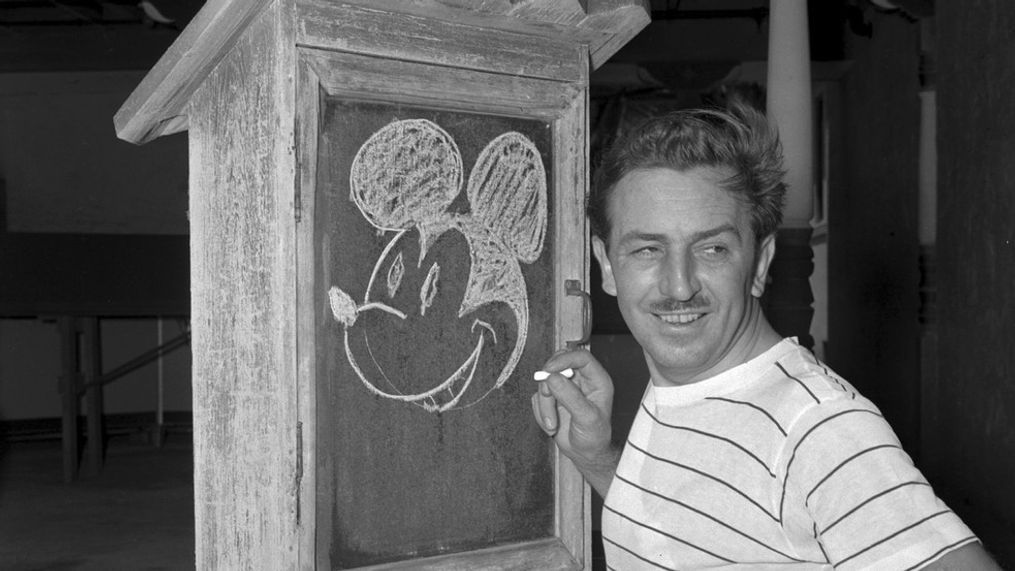'Steamboat Willie,' first Mickey Mouse cartoon, enters public domain in 2024. What does that mean for Disney?
WASHINGTON (TND) — When the clock strikes midnight on Jan. 1, 2024, something major in the entertainment world will happen amid the cheering and fireworks and kissing: "Steamboat Willie," the first cartoon to feature one Mickey Mouse, will enter public domain.
While the promise of the copyright expiring on the primoridal form of the The Walt Disney Company's instantly recognizable mascot has media watchers rubbernecking with headlines like "Mickey Mouse really enters the public domain in 2024," the reality is more nuanced.
In essence, Mickey Mouse does indeed enter public domain Monday, but only the specific depiction character from the "Steamboat Willie" cartoon.
Aaron Moss, a Los Angeles-based attorney specialized in copyright and trademark, who has served as the president of the Los Angeles Copyright Society and writes the blog copyrightlately, unpacked this point for The National Desk in an interview about the topic last year.
“When it comes to Mickey Mouse; ‘Steamboat Willie’ is a snapshot of Mickey Mouse at a particular point in time," Moss explained. "And if you look, and you can just Google 'Mickey Mouse' through the years, and you'll see the evolution to what the character has kind of become known as today."
While many may think that Mickey entering the public domain gives free reign and free use over the character, what public domain actually "allows you to do is to use those elements of a character that are in the public domain, but not to use any elements of that character or any story plot settings that are still protected," Moss summarized.
So, while someone could conceptually use "Steamboat Willie"-era Mickey for their own story, they cannot adapt any other Mickey Mouse cartoon or evolved depiction of the character from the past 95 years. DirectorRhys Waterfield walked this same tightrope earlier this year with his film "Winnie the Pooh: Blood and Honey," a slasher horror film that imagines Pooh and Piglet going feral after being abandoned by Christopher Robin.
“We’ve tried to be extremely careful,” Waterfield told Variety in May 2022. “We knew there was this line between that, and we knew what their copyright was and what they’ve done. So, we did as much as we could to make sure [the film] was only based on the 1926 version of it.” That included things not using the more ubiquitous red shirt for the character. Similarly, potential Mickey-adapters cannot use the character's current incarnation with red pants, stark white gloves and the like.
***WARNING: GRAPHIC VIDEO. VIEWER DISCRETION IS ADVISED.***
***WARNING: GRAPHIC VIDEO. VIEWER DISCRETION IS ADVISED.***
There are further implications for "Steamboat" Mickey's passage into the public domain, as the mouse has had a major hand in setting the last 30 years – if not longer – of U.S. copyright law.
The last major update to copyright, 1998's Copyright Term Extension Act, was labeled by some critics and naysayers as "The Mickey Mouse Protection Act" as, under the terms of the Copyright Act of 1976, "Steamboat Willie" was set to enter the public domain in 2003. Disney had been lobbying for copyright extensions since the early years of that decade.
However, copyright laws – specifically the kind of extensions that protected Mickey before – have not been updated since and, by Moss' estimates, likely will not be by the current moods in Congress.
What you're finding is that Republicans who may previously have been advocate supporters of Disney – and other companies that have a vested interest in having copyright protection be as long as possible – a lot of them switched to the other side.
Moss points to a 2022 bill by Sen. Josh Hawley, R-Mo., The Copyright Clause Restoration Act, which would seek to limit new copyrights to 56 years (as opposed to current law of author’s lifetime plus 70 years or 120 or 95 years in the case of corporate ownership) and retroactively apply the change to large entertainment companies like Disney.
There's also the possible conflict over the copyright – the ownership of a creative, expressive work – on the film itself and the character of Mickey within and the trademark – the ownership of a logo or design that identifies and distinguishes products and services – on the Mickey Mouse name and imagery associated with the character.
"We don't know for sure how it's going to interplay,” explained Moss. “No court has really decided what will happen when these two rights clash."








